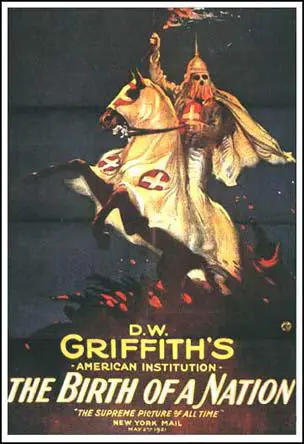Birth of a Nation
D.W. Griffith, a film director working in Hollywood, made over 400 films for the Biograph Company between 1907 and 1913. Griffith wanted to make feature-length films but when this idea was rejected he left the company. He immediately began work on adapting The Clansman, the novel by Thomas Dixon.
Dixon's novel tells the story of the aftermath of the American Civil War. Griffith, the son of a Confederate Colonel in the war, was interested in conveying the feelings of people living in the South after being defeated by the Northern army.
When Birth of a Nation opened on 8th January, 1915, it created a sensation. Griffith's use of intricate editing and film techniques such as alternating close-ups and long-shots from varying camera angles, were revolutionary and inspired a generation of directors.

However, the film's portrayal of the Ku Klux Klan and African Americans, resulted in D.W. Griffith being accused of racism. Despite attempts by the National Association for the Advancement of Colored People to have the film banned, it was highly successful at the box office. The film, which cost $110,000 to make, eventually grossed more than $60 million.
Deeply hurt by the accusations of racism, Griffith's next film, Intolerance (1916), was a quartet of stories of man's inhumanity to man. Griffith's attempt to compensate for the politics of the Birth of a Nation was a commercial flop. The film left him heavily in debt and over the next few years desperately attempted to make films that would enable him to pay off his creditors.
Primary Sources
(1) Ida Wells, a members of the NAACP, was involved in the protests about Birth of a Nation. In her In her autobiography, Crusade for Justice (1928), she described how D. W. Griffith defended his film in court.
Mr. D. W. Griffith, the creator of the film, took the stand and denied that there was anything in The Birth of a Nation which could be objected to. D. W. Griffith was a great artist and one of the leading geniuses in presenting photo plays. That he should prostitute his talents in what would otherwise have had the finest picture presented, in an effort to misrepresent a helpless race, has always been a wonder to me. I have often wondered if his failure to establish himself as a moving picture magnate is not because he chose to prostitute his magnificent talents by an unjust and unworthy portrayal of the Negro race.
